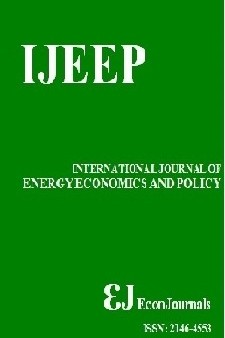Structural Vector Auto Regression Analysis of the Dynamic Effects of Shocks in Renewable Electricity Generation on Economic Output and Carbon Dioxide Emissions: China, India and Japan
Structural Vector Auto Regression Analysis of the Dynamic Effects of Shocks in Renewable Electricity Generation on Economic Output and Carbon Dioxide Emissions: China, India and Japan
This paper investigates effects of shocks in the share of renewable electricity in total electricity generation on real output growth and CO2 emissions in China, Japan and India from 1970 to 2011 using Structural Vector AutoRegression analysis. These economies are assumed to face exogenous correlated random shocks in the share of renewable electricity in total electricity generation (RT). The substantiality of the shocks’ impact on real output growth and CO2 emissions were examined using impulse responses and variance decompositions. The impulse responses show that positive shock in RT positively affects real output growth and reduces CO2 emissions. Shocks in RT have long-lived impacts, but all countries show stability signs and absorb RT shocks with some delays. Variance decompositions analysis corroborates the findings of impulse responses. These research findings support governmental initiatives that reduce CO2 emissions through renewable power generation and ensure sustained economic growth.
Keywords:
Renewable Electricity CO2 Emissions, Economic Growth,
- Başlangıç: 2011
- Yayıncı: İlhan ÖZTÜRK
